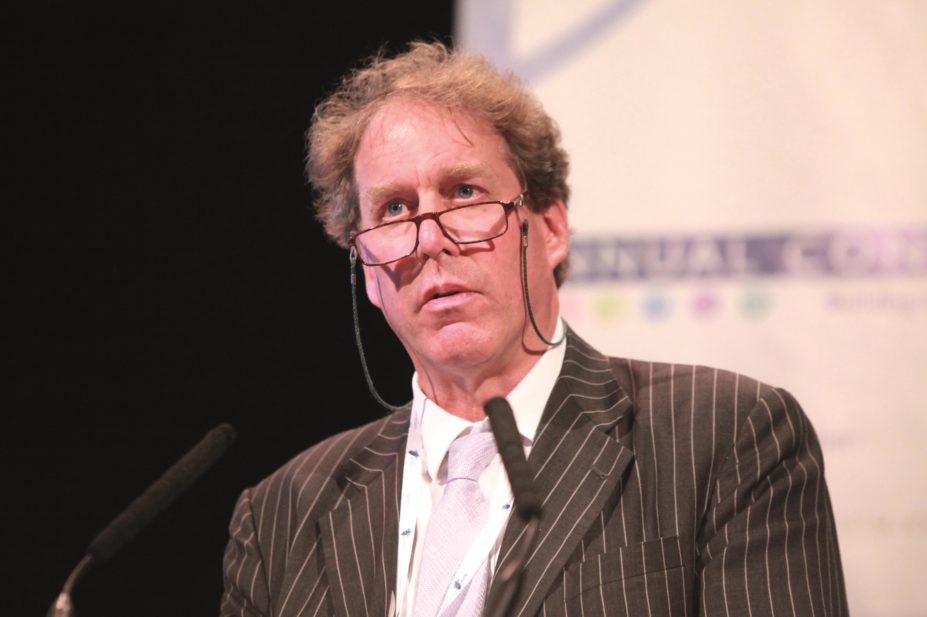
RPS
Nigel Clarke, chair of the General Pharmaceutical Council (GPhC), has spoken of his support for the Royal Pharmaceutical Society’s “move towards research-based solid science”.
Clarke made his comments during a speech at the RPS Annual Conference on 4 September 2017.
“We all need to understand, in this extraordinary post-truth world, the importance of truth. I commit the GPhC to that,” he said.
“If ever anyone thinks that we are making unjustified assumptions about anything that can be properly tested, I’d like to be told.”
Clarke was speaking during a session discussing revalidation, and he went on to update delegates on the GPhC’s recent consultation.
The GPhC would, Clarke said, report on its analysis of the consultation at a Council meeting in October, at which time the consulation analysis would be published.
Giving a preview of the results to conference attendees, Clarke said that the GPhC had received more than 2,000 consultation responses, 80 of which came from organisations. The majority of respondents supported the proposals, he said, with broad recognition that the inclusion of peer review and a reflective account would be beneficial.
But, he added, a “good deal of detail needs to be further worked out”.
“People do agree that the simplifications are an improvement, and the emphasis on reflection is less prescriptive, and therefore more meaningful, than the current requirements.”
But, Clarke added: “I am aware, that for many people, especially those for whom revalidation is important for the public’s point of view, they would prefer to see a prescribed list of things they must do.”
The vast majority of people support the idea of annual submission, Clarke said, although some did not welcome it and preferred a three or five-yearly cycle.
Clarke raised the issue of lay peer-reviewers, asking whether the robustness of peer review would be reduced by their lack of pharmacy expertise, or whether they would bring an external view that would benefit the pharmacy profession.
“I think we need to look at this in much greater detail — we need a wider debate”, he said. “If the proposals we put forward don’t actually benefit the registrant, then we’ve made a mistake.”
The vast majority of responses were, Clarke said, “along the lines of ‘We agree with the direction of travel, but …”
“We are going to spend the remainder of this year and the beginning of next year finalising the approach. The intention is that we phase the introduction of revalidation from the second half of next year onwards, with full implementation by 2020,” he said.
“But the work doesn’t stop there. If it becomes clear as [revalidation] operates that further improvements could be made, then that will happen.”


